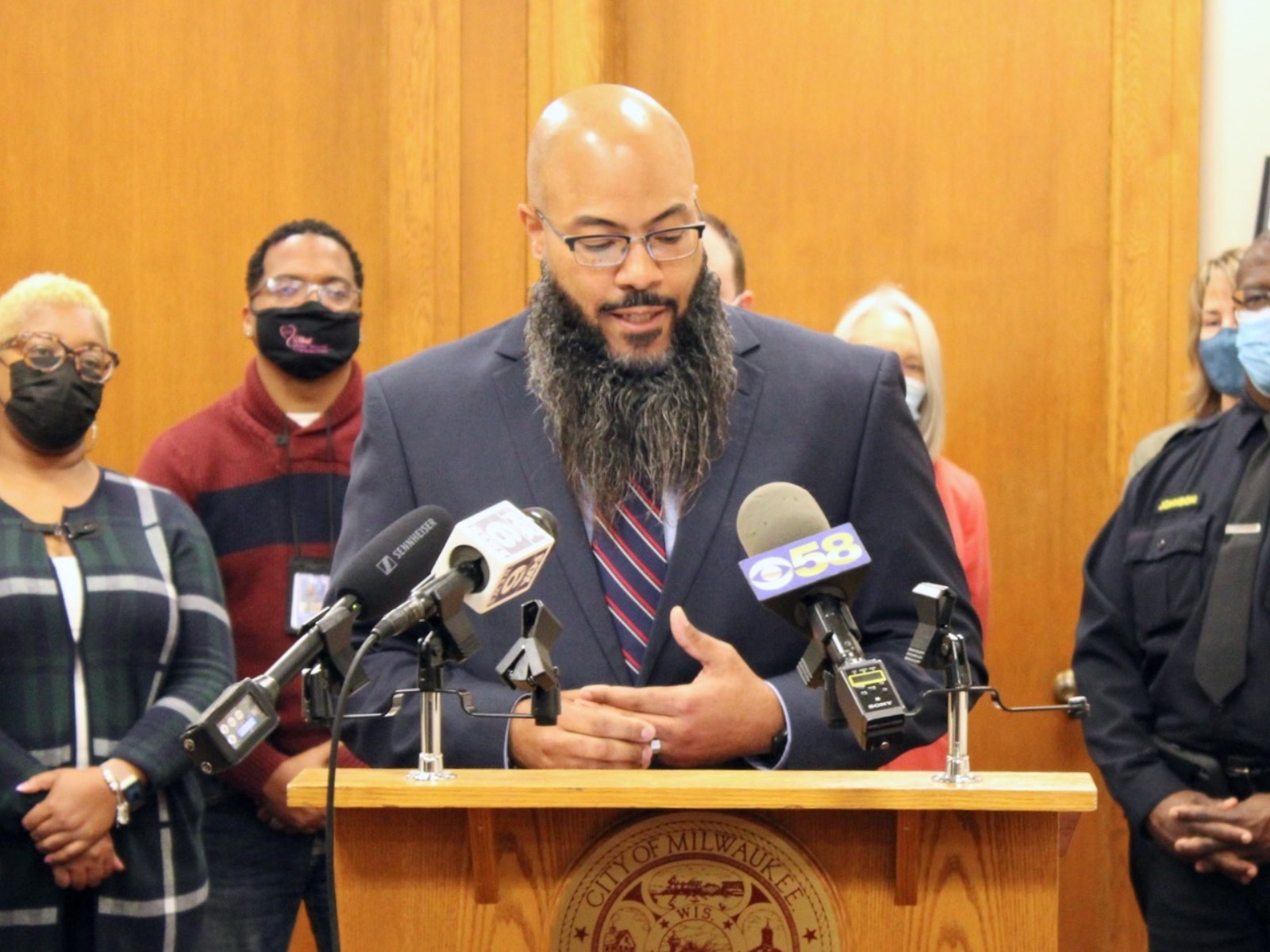The Rev. Willie Davis, senior pastor of Invisible Reality Ministries in Milwaukee, has had enough.
Since he started his ministry, located at 2700 N. 54th St., he has seen pain and loss in his congregation. He’s consoled mothers whose sons have attempted suicide with unsecured guns. He’s held services for young people who have lost their lives to gun violence.
He’s tired, and he’s had enough.
“I don’t want to do another funeral,” Davis said. “If we can save as many people as we can with smart guns, with gun locks ... let’s do it.”
He’s hopeful the first step in the process will be Milwaukee joining the Gun Safety Consortium, which includes group of cities and towns around the country committing funds for research into new gun safety measures. The group aims to bring together public funders to support research and purchasing for new gun safety technologies.
The Common Council voted Nov. 2 for Milwaukee to enter the Gun Safety Consortium, and Mayor Tom Barrett signed the resolution Wednesday.
Davis is a member of Common Ground, a citizen group based in Southeastern Wisconsin that works to address social issues, such as gun violence. The group’s gun safety campaign, Do Not Stand Idly By, brings together citizens, clergy and law enforcement to advocate for policies.
Members of the Milwaukee Police Department will begin testing 18 products that could help mitigate gun violence. Laura Vuchetich, a member of East Siders for Common Ground, said the immediate goal is to identify five or six of these products to use.
The effort could result in normal firearms being converted to smart guns, which are guns that require user identification to fire; holsters that make weapons handling safer; geo-locating devices; and anti-theft measures.
Though the product testing for the new technologies will begin in December, it may take some time to see the effects. The Rev. Robert Ater, associate pastor of Immanuel Presbyterian Church and a member of Common Ground, said Milwaukee will participate in the program for at least two years, based on its $10,000 contribution for membership in the consortium.
After the products are tested, work begins to get them into the community. The effort is easier said than done: Many of the products cost over $100 on average, making them expensive for many gun owners. Cost considerations will make it more difficult to distribute these products than it is now for more inexpensive efforts, like gun locks distributed by the Office of Violence Prevention, Vuchetich said.
Members of Common Ground will also be tasked with getting the community on board. As far as convincing them of the importance, Davis said the plan is to let stories of those affected speak for themselves.
“It’s the power of the story,” Davis said. “We share the stories of the families that have been hurt through senseless violence, through suicide.”
The stories help to keep those working on the project grounded, too.
“It depends on where we come from, but all of us have some kind of story that motivates us to find a solution and keep our eyes on this long horizon,” Vuchetich said.
Ater said the initiative is about more than violent crime. Suicide accounted for around 70% of gun deaths in Wisconsin as of 2019, he said. The initiative also hopes to reduce accidental firearm deaths, especially among young children.
It can be hard to get as much attention for suicide deaths by firearm, Vuchetich said, because they are often covered less than violent crime.
“Suicides are quiet,” Vuchetich said. “People don’t know about them. It’s not a fear-creating death or violence.”
The efforts could be critical, considering how guns are handled nationwide. Less than 50% of guns are secured properly, Ater said. These efforts hope to find common ground between safety advocates and the everyday gun owner.
“This is a life and death matter we hear about every day,” Ater said.





.jpeg)

